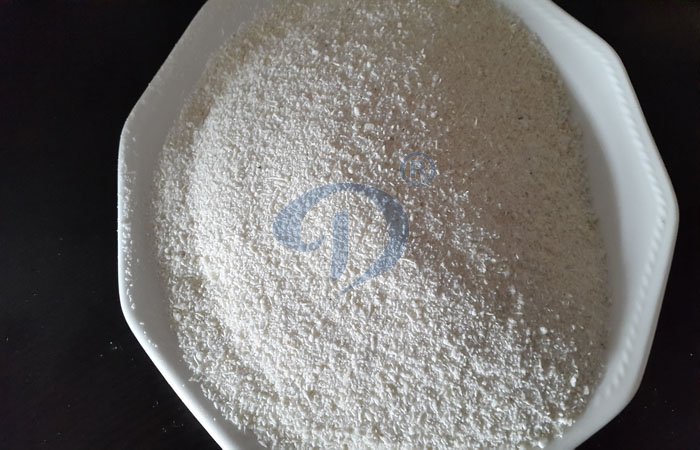Why is cassava an important food crop for Africa?

cassava flour
Cassava is highly adaptable to the African tropical climate and soils, and remains very popular for producing excellent harvests even when other crops fail. It is also the most widely available source of carbohydrates and dietary energy in Africa.
Processed forms of cassava, especially gari (or garri), fufu and tapioca, are very common throughout West Africa. Gari is hugely popular in the region as it has traditionally remained cheaper than other carbohydrate sources, especially rice and maize.
This has aptly earned it the nickname “the common man’s food”.
Gari (also Garri or tapioca) is the most widely traded processed cassava product. It is estimated that more than 75 percent of the cassava produced in Africa is processed into gari.
As a result, gari prices are often a reliable indication of the demand and supply of cassava.
However, the price of cassava and its derivatives have increased sharply in the past few years. The population explosion in Africa has made it difficult to produce enough cassava to feed many ‘common’ Africans.
In addition, the raging economic growth of China has made it the largest buyer of African cassava, which it uses as a major ingredient for animal feed for livestock (cattle, pigs etc.). China is currently responsible for more than 60 percent of global cassava consumption, and is still buying more from Africa (especially Nigeria)!
Combine the growing profile and demand for cassava as a source of biofuels and it becomes very evident that the future demand and prices for cassava is headed for the skies.
The estimated value of the global cassava trade is in excess of US$2 billion annually. However, Thailand, Brazil and Indonesia dominate the international trade in cassava.
Despite its favourable climate, fertile soils and cheap manpower, Africa is yet to fully exploit the huge returns from the global cassava trade.
Due to the very short shelf life (2-3 days) of harvested cassava tubers, inadequate road and power infrastructure, most of the cassava produced in Africa is consumed locally, where it is still unable to address the growing consumption.
As a result, a lot of the cassava harvested every year in Africa become spoilt and never make it to the market. This wastage is estimated to be worth millions of dollars every year.
PREV:Some infomation about cassava processing
NEXT:Successful operation of tapioca starch processing machine
Leave a message
contact us
- WhatsApp:
+8613526615783
- Email:
sales@doinggroup.com
- Tel:
0086 135 2661 5783
- Phone:
0086 371 5677 1822
- Skype:
elina881130
- Address:
No.133 Yaozhai Road, Jinshui District, Zhengzhou City, Henan Province, China
News
-
 Factors affecting the price of cassava processing equipment
Factors affecting the price of cassava processing equipment
-
 How to starct cassava production and processing business in Nigeria ?
How to starct cassava production and processing business in Nigeria ?
-
 DOING cassava starch production line successfully delivered to Nigeria
DOING cassava starch production line successfully delivered to Nigeria
-
 Cassava peeling machine shipped to Nigeria
Cassava peeling machine shipped to Nigeria
-
 What are the advantages of automatic starch production line ?
What are the advantages of automatic starch production line ?
-
 Garri processing machines and their prices
Garri processing machines and their prices
-
 New cassava slicer machine are ready to ship to Nigeria
New cassava slicer machine are ready to ship to Nigeria
-
 How profitable is garri processing business in nigeria ?
How profitable is garri processing business in nigeria ?
-
 Factors affecting the price of garri processing machine
Factors affecting the price of garri processing machine
-
 A brief introduction of garri processing machine in Ghana
A brief introduction of garri processing machine in Ghana
Products
FAQ
-
 What is high quality cassava flour, how to produce high quality cassava flour ?
What is high quality cassava flour, how to produce high quality cassava flour ?
-
 How to process cassava into cassava chips ?
How to process cassava into cassava chips ?
-
 Cassava starch manufacturing process
Cassava starch manufacturing process
-
 How to maintain cassava starch processing equipment ?
How to maintain cassava starch processing equipment ?
-
 How to extract cassava starch ?
How to extract cassava starch ?
-
 How to make cassasva starch?
How to make cassasva starch?
-
 Water, electricity, steam and land deploy in starch processing plant
Water, electricity, steam and land deploy in starch processing plant
-
 How profitable is cassava starch made?
How profitable is cassava starch made?
Leave a message

Tel/Whatsapp:
+8613526615783



